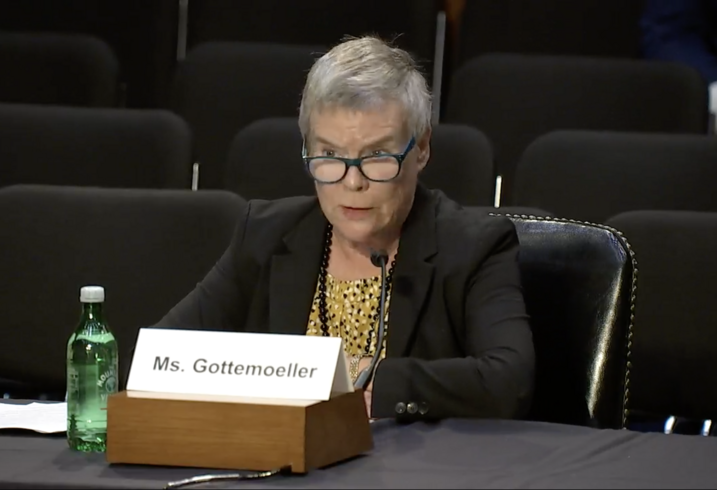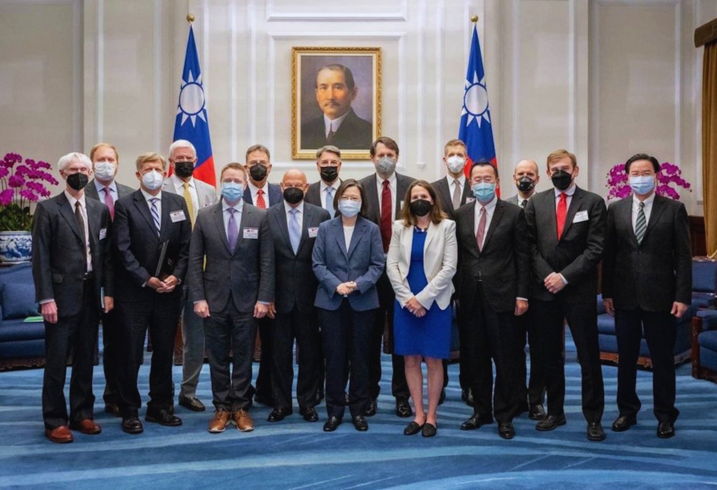As Russia’s military faltered and lost ground in its conventional war against Ukraine, concern grew in the West that Vladimir Putin might resort to nuclear weapons. The Kremlin, however, has real reasons not to cross the nuclear threshold, and its hints of nuclear use have not brought Kyiv’s capitulation or an end to Western support for Ukraine any closer. In recent weeks, Moscow has seemed to deescalate the nuclear rhetoric.
Russia’s military campaign in Donbas stalled over the summer, and Ukrainian counteroffensives in the Kharkiv and Kherson regions subsequently have liberated substantial tracts of territory. As the Ukrainian army pressed forward, the Kremlin began to grow desperate, with Putin ordering mobilization of 300,000 men. Many in the West began to fear that the Russian leader, facing an increasingly difficult situation, might play the nuclear card against Ukraine.
Putin set the stage for this early on. In February, just three days after the Russian army invaded Ukraine from the north, south and east, he ordered a “special combat readiness” for Russian nuclear forces. In September, the situation deteriorated for Russia, and Putin set in motion his desired annexation of four Ukrainian oblasts (regions), none of which his military fully controlled. His language, and that of other Russian officials, hinted at nuclear use.
Announcing the mobilization on September 21, Putin stated “In the event of a threat to the territorial integrity to our country and to defend Russia and our people, we will certainly make use of all weapon systems available to us. This is not a bluff.” Many observers read “all weapons systems” as including nuclear arms. Russian Security Council Deputy Chairman Dmitry Medvedev on September 27 said that it certainly “was not a bluff” and went on to “imagine” a Russian nuclear strike on Ukraine.
In a September 30 speech, Putin proclaimed Ukraine’s Luhansk, Donetsk, Zaporizhzhia and Kherson oblasts to be part of Russia and asserted “We will defend our land with all the forces and resources we have.” In case anyone missed the point, he cited the U.S. nuclear attacks on Hiroshima and Nagasaki in 1945 as having set a “precedent.”
Those remarks got attention. On October 7, President Joe Biden commented in a private setting that he saw a direct threat of nuclear use for the first time since the Cuban missile crisis in 1962. Shortly thereafter, Secretary of Defense Lloyd Austin and Chairman of the Joint Chiefs of Staff Mark Milley had conversations with their Russian counterparts.
The Kremlin may want Ukraine and the West to believe that Russia is prepared to escalate to the nuclear level, but it does not want a nuclear war. Moscow has real reasons not to cross the nuclear threshold.
First, Ukraine does not mass its forces in a way that would create a tempting target for nuclear attack. More importantly, a nuclear strike is unlikely to achieve the political objective of intimidating Kyiv into capitulation. The Ukrainians understand all too well what Russian occupation means. For them, this is an existential fight, and nothing suggests that the Russian threats have undercut their resolve.
Second, the same is true for the resolve of Ukraine’s Western supporters. The flow of arms and other support for Ukraine continues, and Western officials have pushed back on the nuclear question. Meeting on November 4, G7 foreign ministers stated “Russia’s irresponsible nuclear rhetoric is unacceptable. Any use of chemical, biological or nuclear weapons by Russia would be met with severe consequences.” That echoed the message following Biden’s October 7 phone conversation with German Chancellor Olaf Scholz that consequences would be “extremely serious” and NATO Secretary General Jens Stoltenberg’s October 13 warning that Moscow not cross the “very important [nuclear] line.” Russian officials—the senior military leadership, in particular—likely understand that, if they open the nuclear Pandora’s Box, no one can tell what would happen.
Third, Russian officials have to consider the reaction of other countries. Putin’s close friend President Xi Jinping of China has been very clear in recent meetings. Xi and Scholz on November 4 “rejected” the threat of nuclear weapons, and Xi and Biden on November 14 condemned Moscow’s nuclear threats. The G20 leaders’ declaration issued on November 16 said “The use or threat of use of nuclear weapons is inadmissible.” Given his isolation from the West, Putin can hardly afford to alienate Xi or other countries in the Global South. Few would like the precedent of Russia, a nuclear state, using nuclear arms against a smaller, non-nuclear neighbor after its conventional aggression had failed.
There are indications the Kremlin understands that it has overplayed its hand and in recent weeks has sought to tone down the nuclear rhetoric.
Speaking to the Valdai Discussion Club on October 27, Putin raised the question “that Russia might theoretically use nuclear weapons,” called “the current fuss” a “very primitive” attempt to turn countries against Moscow, and commented that “we have never said anything proactively about Russia potentially using nuclear weapons.” While not exactly true, it was very different from the Russian leader’s September pronouncements. A November 2 Russian Foreign Ministry statement said Russia is guided by the principle that “a nuclear war cannot be won and must never be fought,” reiterated commitment to the January 3, 2022 statement by the U.S., Russian, Chinese, British and French leaders on preventing a nuclear war, and noted that provocations with nuclear weapons could entail “catastrophic consequences.”
Chinese Foreign Minister Wang Yi reported that, in their November 16 meeting, Russian Foreign Minister Sergey Lavrov had stated that nuclear use was “impossible and inadmissible.” Representing Russia at the G20 summit, Lavrov agreed to the leaders’ declaration that included the language about the inadmissibility of the use or threat of use of nuclear arms.
Russian officials have backed away from the nuclear hints and threats of September and sought to tone down the rhetoric. This does not mean they might not reemerge, but it does suggest that the Kremlin understands that the use of nuclear weapons would have significant consequences for Russia, and that its nuclear threats failed to achieve their desired political objectives while proving counterproductive for Russia’s image abroad.
* * * * *


![Rose Gottemoeller [left] stands with Hillary Clinton [right] in the Treaty Room at the U.S. Department of State in Washington D.C.](https://fsi9-prod.s3.us-west-1.amazonaws.com/s3fs-public/styles/680x378/public/2022-12/gottemoeller_clinton_state_department_policy_flikr_hero.png?itok=nhZBZm70)




















